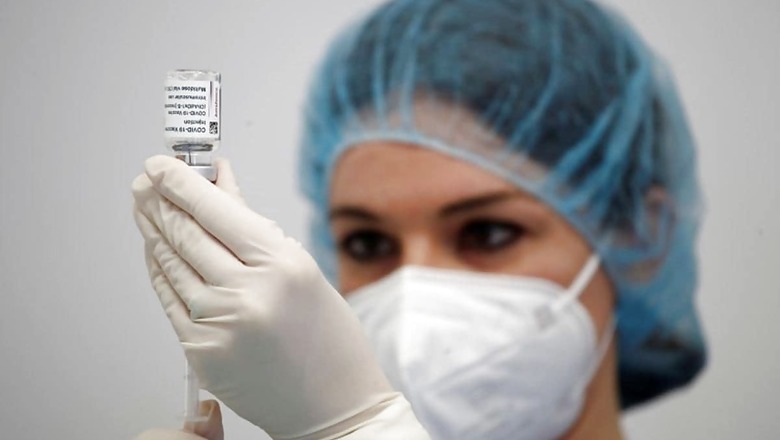
views
Ahmedabad-based pharmaceutical firm Zydus Cadila has requested emergency use approval for its ZyCoV-D three-dose Covid shot that is the world’s first Plasmid DNA vaccine. Zydus claims its vaccine is 66.6 per cent effective against symptomatic Covid cases and 100 per cent for moderate disease. It also says the vaccine is safe for children between 12 and 18 years. But its trial data is not peer-reviewed yet. The vaccine, which is in its second phase of trials, is a “plasmid DNA” vaccine that can be stored at 2-8 degree Celsius.
As the firm awaits nod, here’s breaking down the science behind the vaccine and its efficacy.
What is plasmid DNA?
DNA vaccination is a novel approach for inducing an immune response. Purified plasmid DNA containing an antigen’s coding sequences and the necessary regulatory elements to express them is introduced into the tissue via intramuscular injection.
Once the DNA reaches the tissue, the antigen is expressed in enough quantity to induce a potent and specific immune response and to confer protection against further infections. The effectiveness of DNA vaccines against viruses, parasites, and cancer cells has been demonstrated in numerous animal models. Such DNA can replicate independently and is commonly found in bacterial cells.
ZyCoV-D uses such a genetic material to elicit an immunogenic response in the body.
How does this work?
With ZyCoV-D, the Indian firm has established a DNA vaccine platform that uses a non-replicating plasmid, which carries the gene of interest.
It means that the vaccine will push the body to build antibodies against the coronavirus, as the inserted DNA sequence will match the sequence pattern of the virus.
According to a report by The Print, the plasmid DNA is introduced into the host cells, where it is translated into the viral protein and elicits a strong immune response mediated by the cellular and humoral arms of the human immune system.
How is this different?
Unlike Covaxin, which requires a Bio-Safety Level 3 lab to manufacture the jab, ZyCoV-D can be manufactured in a facility of BSL-1.
While the platform has low cold chain requirements, making it easy to distribute the vaccine, it can also be modified if the novel coronavirus mutates again.
Are there advantages?
According to World Health Organisation, this approach offers a number of potential advantages over traditional approaches, including the stimulation of both B- and T-cell responses, improved vaccine stability, the absence of any infectious agent and the relative ease of large-scale manufacture.
As proof of the principle of DNA vaccination, immune responses in animals have been obtained using genes from a variety of infectious agents, including influenza virus, hepatitis B virus, human immunodeficiency virus etc. In some cases, protection from disease in animals has also been obtained.
However, the value and advantages of DNA vaccines must be assessed on a case-by-case basis.
Also, ZyCoV-D can remain stable even at a room temperature of 25 degrees Celsius, which makes it easier to administer.
What about efficacy?
Zydus claims its vaccine is 66.6 per cent effective against symptomatic Covid cases and 100 per cent for moderate disease. It also says the vaccine is safe for children between 12 and 18 years. But its trial data is not peer-reviewed yet.
Read all the Latest News, Breaking News and Coronavirus News here.




















Comments
0 comment